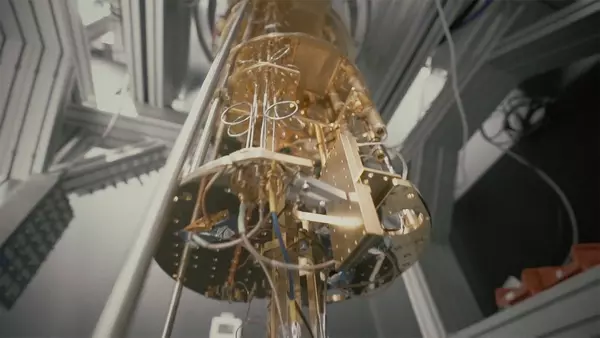IonQ has announced a groundbreaking achievement in quantum computing, reaching two-qubit gate fidelity exceeding 99.99% — a milestone commonly referred to as crossing the “four-nines” threshold. This breakthrough represents a crucial advance toward realizing error-corrected, large-scale quantum systems capable of tackling real-world computational challenges.
Reducing Quantum Error Rates
Quantum gate fidelity measures the precision with which qubits perform operations. By achieving 99.99% fidelity, IonQ has significantly reduced quantum error rates — a longstanding barrier to scalable quantum computing. The company emphasized that this milestone validates years of work refining its control systems, algorithms, and hardware stability.
Trapped-Ion Architecture Powers Precision
The breakthrough was achieved using IonQ’s trapped-ion quantum architecture, which employs electromagnetic fields to isolate and manipulate individual ions as qubits. This design is known for its long coherence times and high operational accuracy, making it one of the most promising platforms for developing fault-tolerant quantum systems.
Setting a New Industry Benchmark
Surpassing the 99.99% fidelity threshold positions IonQ among the global leaders in quantum hardware performance. The company stated that its new high-fidelity operations will be integrated into its upcoming quantum processing units (QPUs), set to power future cloud and enterprise quantum deployments.
Toward Error-Corrected Quantum Computing
IonQ said the achievement marks a major step forward in its roadmap toward error-corrected and fault-tolerant quantum computing. Such systems could unlock breakthroughs in fields including materials science, cryptography, logistics optimization, and drug discovery, where traditional supercomputers face limitations.
“This breakthrough validates our approach and moves us closer to error-corrected quantum computing,” the company noted in a statement.
The Road Ahead
As the race to achieve practical quantum advantage accelerates, IonQ’s success highlights how advances in gate fidelity and qubit control are driving the industry closer to real-world applications. Experts say that sustained progress in this area will define the next era of computational power — where quantum systems outperform classical computing on meaningful, large-scale problems.

